Co-operative Research Programme: Sustainable Agricultural and Food Systems
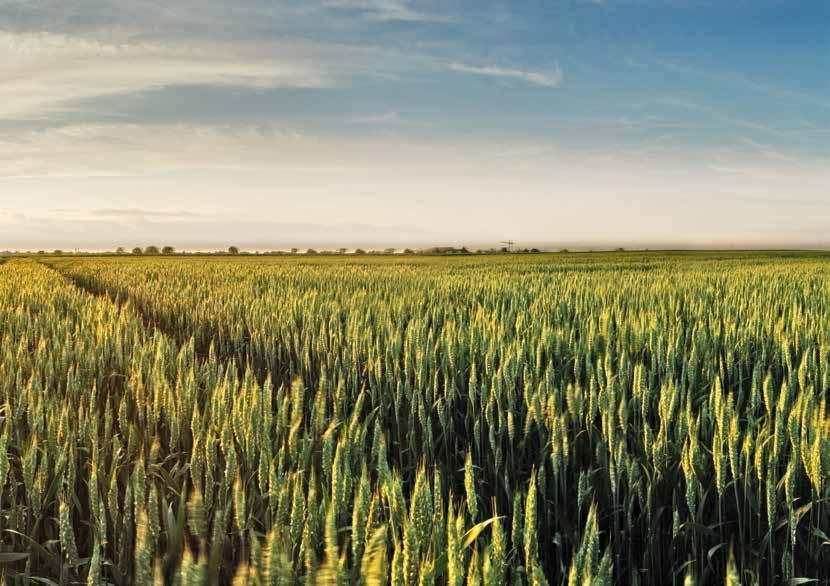
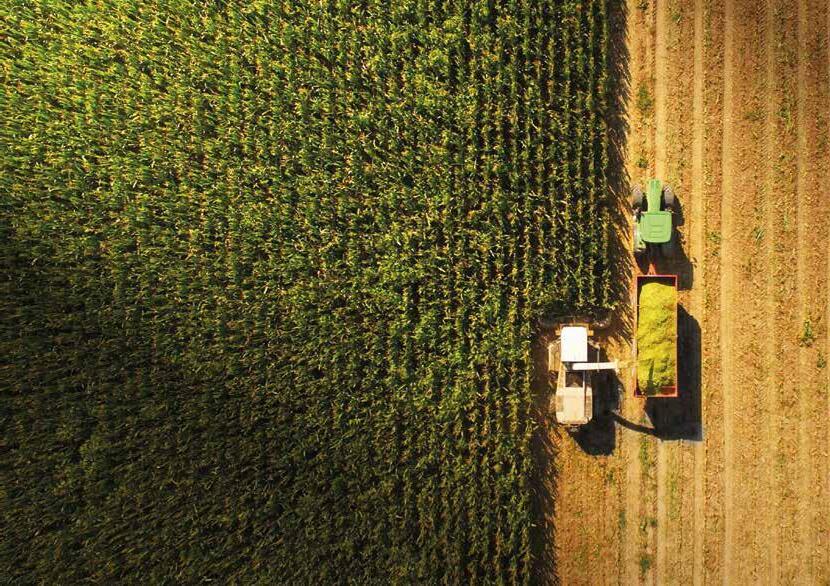



OECD’S CO-OPERATIVE RESEARCH PROGRAMME (CRP)
l Funds cutting-edge research on food, agriculture, fisheries and forestry.




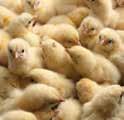

l Facilitates international research fellowships and conferences.
l Focuses on sustainability, food security and nutrition.

CRP member countries benefit from:
l access to an international scientific network
l an important vehicle for international co-operation
l an opportunity to showcase their national scientific research and excellence in agriculture, food, fisheries and forestry.
CRP OUTPUTS REGULARLY FEED INTO OECD SUPPORT TO IMPROVING PUBLIC POLICIES.
Membership in the OECD CRP is open to all countries.
OECD’S CO-OPERATIVE RESEARCH PROGRAMME (CRP) .
The world will need to feed a population of at least nine billion by 2050. The ability to do so hinges on the sustainability of the world’s natural capital and its food production systems. Knowledge sharing and innovation in agriculture, food, fisheries and forestry have never been so important.
l In 2021 the UN held a Food Systems Summit as part of the Decade of Action to achieve the SDGs by 2030. The Summit highlighted the need for the world to work together to transform how the world produces, consumes and thinks about food, with everyone acting to transform the world’s food systems.
l 2021 was designated as the International Year of Fruits and Vegetables by the FAO, with an appeal to improve healthy and sustainable food production through innovation and technology.
l 2020 was the International Year of Plant Health, highlighting the importance of plant health to the health of humans and the planet. Plants are the source of the air we breathe and most of the food we eat, but climate change and human activities are altering ecosystems, reducing biodiversity and creating new niches where pests can thrive and reduce plant health. The Food and Agriculture Organization of the UN (FAO) estimates that up to 40% of food crops are lost due to plant pests and diseases annually, leaving millions of people without enough food to
eat and seriously damaging agriculture – the primary source of income for rural poor communities.
l In 2016, participants in the OECD Meeting of Agriculture Ministers agreed to make innovation a priority. They endorsed the Declaration on Better Policies to Achieve a Productive, Sustainable and Resilient Global Food Systems, calling on the OECD and its members to:
– promote production systems that use resources sustainably, for animal, plant and human health
– help farmers increase their resilience and cope with more frequent, unpredictable events such as weather-related shocks, disease outbreaks and market volatility.
l In 2016 in Niigata, Japan, G7 agriculture ministers:
– recognised the CRP as a multilateral framework whose work is to be facilitated
– highlighted a number of CRP priorities, including combatting diseases, biological threats, antimicrobial resistance and climate change; reducing food loss and waste; and promoting resilient infrastructure, land, forests and fisheries.
Research and innovation in agriculture, food, fisheries and forestry are leading global priorities
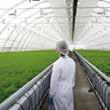


The CRP helps achieve globally agreed policy objectives by facilitating international co-operation among research scientists and institutions. In doing so, it strengthens scientific knowledge and innovation.


The CRP places a policy emphasis on all the activities it funds. CRP findings provide valuable evidence and information to support policy makers in promoting the sustainable use of natural resources in food, agriculture, forestry and fisheries.

The CRP focuses on global issues such as food security, climate change and the inter-connectedness of economies through trade and scientific co-operation. This enables CRP-funded research to generate benefits for people around the world, producing results that resonate within and beyond the programme’s member countries.
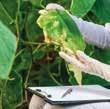


Some examples of CRP impact to date include:
l 2022: On 2 March 2022, the United Nations Environment Assembly adopted resolution UNEP/EA.5/Res.2 on sustainable nitrogen management. The resolution encourages Member States to share information on national action plans, as available, according to national circumstances. The CRP funded a workshop in Paris in May 2022 on Developing Roadmaps for Sustainable Nitrogen Management which developed the draft template for the national action plans called for by UNEA.
l 2021: Following a CRP-funded series of virtual workshops hosted in New Zealand on Grazing in Future Multi-Scapes: From thoughtscapes to landscapes, creating health from the ground up, the organisers worked with the Minister of Agriculture on a plan to implement the changes needed at government level in setting policies in the context of climate change.
l 2019: The 4th International Workshop on Streptococcus suis, sponsored by the CRP brought together experts on this major bacterial swine pathogen which causes significant economic losses to the pig industry worldwide. The workshop played an important role in identifying the emerging issues and questions to be tackled and the latest developments in vaccines, and formulated recommendations for the manufacture, control and use of inactivated autogenous vaccines within the EEA.
l 2015: A CRP fellowship on water quality in New Zealand led to the development of recommendations for herbicide application by the Auckland Regional Authority. After the recommendations were implemented, no herbicide residues were detected in reservoir waters.
l 2013: Trichinosis affects both animals and humans. A CRP-sponsored workshop developed recommendations for international standards to help ensure a Trichinella-free food chain by reducing the cost of pork safety measures while alleviating complex barriers in international trade.
l 2010: The Japanese Biodiversity Outlook was published, based on a study presented at the CRP-sponsored conference on The Role of Forest Biodiversity in the Sustainable Use of Ecosystems Goods and Services in Agro-forestry, Fisheries and Forestry. The Outlook provided government agencies with responsibilities for environmental administration information to inform policy decisions.
To deliver on the overarching challenge of food security and sustainability, the CRP has identified three central themes for 2021-25. All applications for CRP funding must be relevant to one (or more) of these themes.
The following pages outline the main areas of focus within each of these themes.
Our key outcomes
Our path to impact
1
Managing natural capital
2
Strengthening resilience in the face of multiple risks in a connected world
Triple dimensions prism (social, economic, environmental)
Our context: Globalisation and Climate Change
3 Transformational technologies and innovation
… helps to ensure the availability and the quality of natural resources.
l Land. Healthy functioning landscapes deliver a range of services to society. As agriculture is often the dominant land user, maintaining these services depends on sustainable agricultural practices.
l Soil, water and biodiversity. Agricultural production depends on soils, which provide the foundation for productivity. Agriculture is also a major user of water and biodiversity. Modern management practices coupled with climate change and other human activities pose threats that must be managed.
l Aquaculture and fisheries. Marine and fresh-water ecosystems are important sources of food and bio-energy products, yet many are already under pressure.
l Forests. Forests provide wood biomass, carbon sequestration, water retention and biodiversity, and they protect land. Yet forest degradation and deforestation continue at an alarming pace.
l Integrated agricultural production systems. A diversity of efficient, productive and environmentally sustainable agricultural systems will be needed to manage natural capital while meeting future food security challenges.
In the photo below, preliminary data is being collected to characterise the spatial distribution of soil properties in an experimental plot (Institute for Sustainable Agriculture). From a 2016 fellowship: Now you see it and now you don’t: developing multidimensional models of soil salinity and water status.
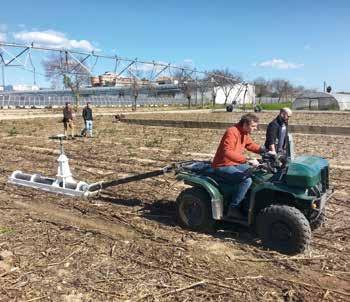
This OECD CRP fellowship has opened up an extremely productive new collaboration, which I anticipate will continue for many years. – Fellowship host

… through research helps to anticipate, pre-empt and cope with potential and real impacts on agricultural systems and food security.
l Invasive species and biosecurity. To ensure biosecurity and also enhance trade opportunities, it is crucial to understand the global spread of pests and diseases, and to ensure their early detection and assessment.
l Food safety. Food-borne diseases take a major toll on public health. Technology to ensure food safety, nutrition, and sustainable consumption and processing is essential.

l Emerging diseases. Pre-emptive science can help to deal effectively with pathogens such as SARS, avian influenza or Ebola. With the growing global reliance on a small suite of crop and livestock species, it is also essential in combatting new diseases that threaten agricultural productivity and crop health.

l Antimicrobial resistance. The emergence and spread of antimicrobial-resistant pathogens raises serious concerns for public health. To preserve the efficacy of antimicrobials, information gaps must be filled and alternative management strategies developed.
l Climate risks to Production. Climate change and variability pose threats to farming enterprises, particularly subsistence or marginal agriculture. Existing and new technologies for crop or livestock improvement offer opportunities to adapt to and mitigate these threats through profitable, sustainable and resilient farming systems.
l Risk assessment. By refining and applying easily accessible risk assessment tools, governments and managers of agricultural systems can anticipate, avoid and react to risks related to biosecurity, climate or market access, thereby minimising their negative impact.
The image below is of a fitness test where single adult aphids of similar age and size are enclosed on clip-cages in wheat plants grown under contrasting CO2 and N regimes. The test returns lifehistory parameters reflecting host-plant suitability. From a 2019 fellowship: Sustainable non-chemical control of Russian wheat aphid in cereal crops



… make it possible to achieve a step change.
l Digital technologies employing GPS, spatial mapping, equipment guidance and robotics minimises inputs while boosting crop growth rates in economically, socially and environmentally responsible ways.
l Advanced breeding tools/Genetic and genomic technologies directly address issues of agricultural productivity, food security, human nutrition and health while reducing stress on natural capital and contributing to green growth.
l Novel waste reduction technologies reduce post-harvest and post-purchase losses, representing the “low hanging fruit” for food supply and food security

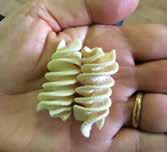
l Biofuels, bio-products and bioprocesses make important contributions to dealing with climate change, but their production on an industrial scale requires innovation to ensure whole-of-supply-chain integrity and sustainability.
l Innovations in social science, economics and education facilitate the translation of scientific knowledge into policy changes, while encouraging wider adoption of sustainable practices by farmers and consumers alike.
Photos taken during a 2014 fellowship in Italy on Soft Kernel Durum Wheat: Sustainable Local and Global Food Security
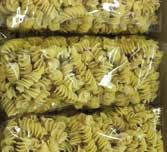
This fellowship provided a tremendous experience and was very productive for me by cementing a new collaboration that brings world class expertise to bear on aspects of my research which I could not have progressed on my own. – CRP fellow

Fellowships:* CRP funds short-term research projects for individual scientists in other CRP member countries. These fellowships strengthen the exchange of ideas and increase international mobility and co-operation. Some 76% of the fellowships result in long-term co-operation between the fellow and their host institutes, a major goal of the programme.
Conferences:* The CRP sponsors international conferences and workshops to help keep policy makers, industry, and the academic world informed of innovative research, scientific developments and opportunities.
These activities:
l promote co-ordination among stakeholders to ensure that their objectives do not overlap or contradict each other
l provide objective evidence of the possible outcomes of approaches and options
l support the definition of measurable policy objectives (e.g. the incorporation of soil security into national law)
l highlight the links between agriculture and diverse policy areas (e.g. the role of education in ensuring food security and sustainability)
*Applicants for fellowships and conferences must be from CRP member countries.
Left: From a 2015 fellowship: Biofouling in Chilean salmon aquaculture: assessment of risks to fish health and the environment.
Right: The CRP-sponsored International Symposium on Food Safety (ISFS): New tools to detect and prevent foodborne outbreaks from farm to fork, Santiago, Chile, 5-7 December 2016.

The networking done at the workshop has proven to be invaluable. – Workshop participant
HOW DOES THE CRP ACHIEVE ITS OBJECTIVES? .

Fellowships:
l 357 fellows
l from 205 research institutes
l at 229 host institutes
l in 23 countries
Conferences:
l 104 CRP-sponsored conferences and workshops
l in 26 countries
l 990 keynote speakers funded
l from 41 countries
A successful and highly regarded programme: Regular surveys of CRP participants and sponsors yield extremely positive appraisals of the programme’s worth, with close to 100% of participants finding them useful for scientific information exchange or collaboration.
Below left: The CRP-sponsored workshop Development of standard research methodologies for the mass rearing of insects fed waste organic residues for the production of novel animal feeds at the international conference: Insects to Feed the World 2020, Quebec, 12-16 June 2022.
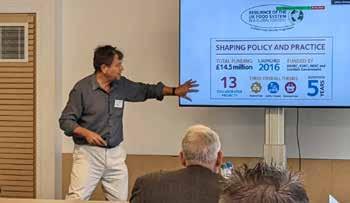
Below right: The CRP-sponsored conference Enhancing Food Systems Resilience, London, 5-6 April 2022.

In my opinion, this fellowship was an overwhelming success. Through the OECD CRP fellowship, I was able to develop a new network of collaborators, effectively unifying two disparate networks with similar challenges and interests. In doing so, my career opportunities were bolstered in terms of growing my network, but also, more tangibly, by developing experience in new systems and generating new data streams that will continue to be the basis of future collaboration. – CRP fellow








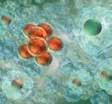

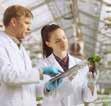


The Governing Body comprises a representative from each member country. It agrees the programme of work, the budget and selects the fellowships and conferences to be funded.
The Scientific Advisory Body, nominated by the Governing Body, is made up of six eminent scientists with agricultural research administration experience. It reviews applications for funding to ensure their scientific quality and makes recommendations to the Governing Body.
National Correspondents are responsible for promoting the CRP among scientists and institutions in their countries. There is one national correspondent for each member country (for some, it is the same person as the Governing Body representative).
The Secretariat, at OECD headquarters in Paris, is responsible for the day-to-day operation of the programme and provides a central contact point.
Funding for the CRP is provided through the financial contributions of the CRP’s member countries.
CRP member countries (at 1 July 2023)
Australia, Austria, Belgium, Canada, Chile, Colombia, Czech Republic, Denmark, Estonia, Finland, France, Germany, Hungary, Ireland, Israel, Italy, Japan, Korea, Latvia, Lithuania, Netherlands, New Zealand, Norway, Slovak Republic, Spain, Sweden, Switzerland, United Kingdom, United States
Find out more about the CRP
Full details about the CRP are available at www.oecd.org/agriculture/crp, including:
l a list of conferences and fellowships funded since 2017
l feedback and reports on the conferences and fellowships
l the criteria for research fellowships
l how to apply for a CRP fellowship or conference sponsorship.
OECD
Co-operative Research Programme: Sustainable Agricultural and Food Systems
Trade and Agriculture Directorate
2 rue André Pascal, 75775 Paris Cedex 16, FRANCE
TAD.PROG@oecd.org
We would welcome the opportunity to work with the CRP again. – Conference organisers

OECD
Co-operative Research Programme: Sustainable Agricultural and Food Systems

Trade and Agriculture Directorate
2 rue André Pascal
75775 Paris Cedex 16
FRANCE
www.oecd.org/agriculture/crp
TAD.PROG@oecd.org